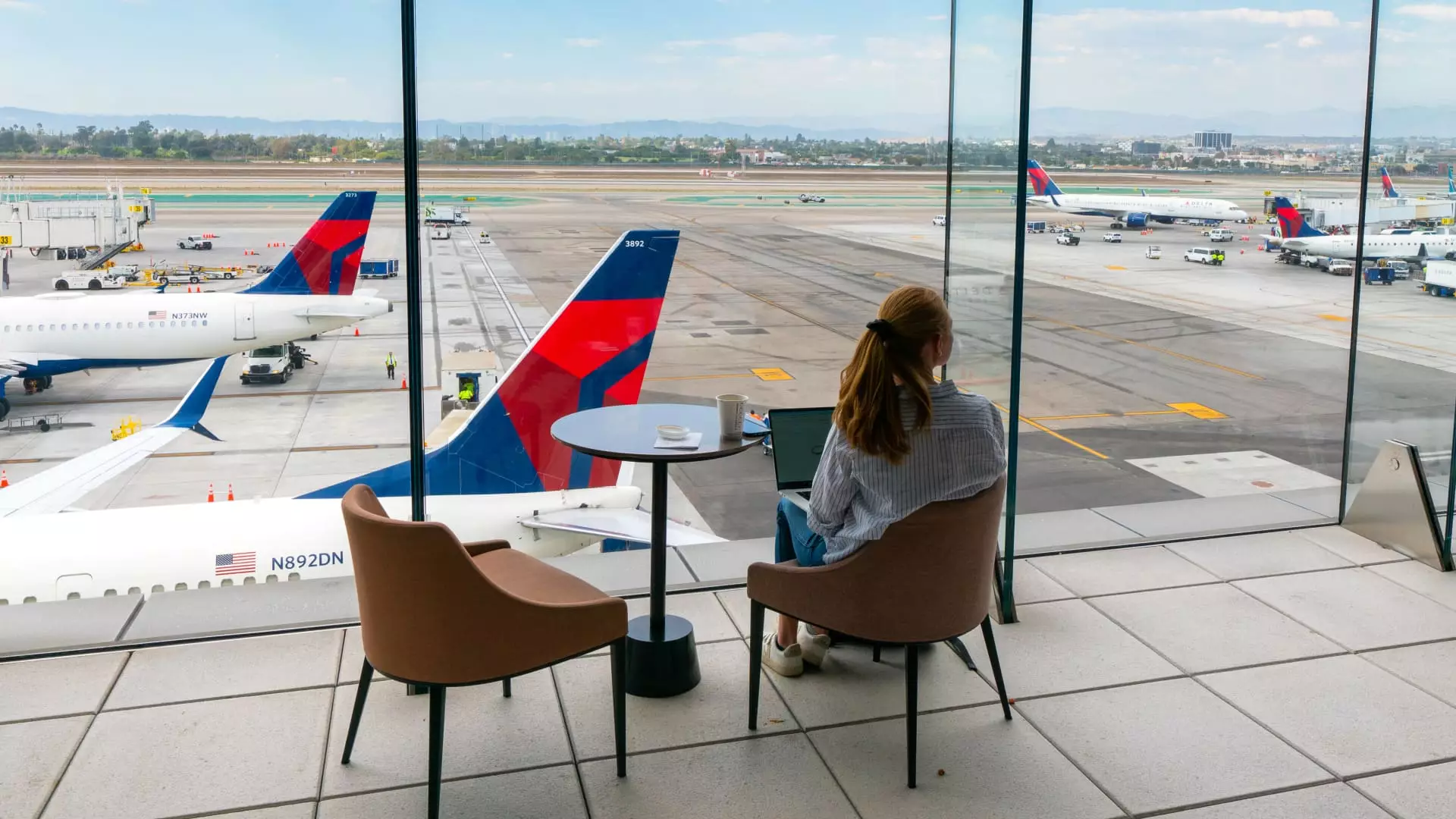Airlines often serve as an economic barometer, revealing insights into broader economic conditions through their performance metrics and market outlooks. Recently, however, the mood among airline executives has shifted dramatically, with prominent players like Delta Air Lines and Frontier Airlines retracting their positive 2025 forecasts. The once sunny skies of a robust travel surge are now overshadowed by uncertainty, with CEOs pointing to an increasingly troubling economic landscape characterized by weaker demand and declining consumer confidence.
CEO Ed Bastian of Delta Air Lines captured the sentiment succinctly during a recent CNBC interview, articulating a shared anxiety within the aviation community by stating, “I think we’re acting as if we’re going to a recession.” The atmosphere has flipped since the turn of the year when airlines anticipated 2025 would become their most profitable year yet. This turnabout raises questions about the sustainability of leisure travel’s post-pandemic boom and how airlines are recalibrating their growth strategies.
The Disruption of Consumer Sentiment
The decline in consumer sentiment, highlighted by data from the University of Michigan, further echoes the caution voiced by airline executives. A report from Bank of America painted a bleak picture for discretionary spending on services like dining and travel, focusing on how consumers are now prioritizing essentials over luxuries. The fact that higher-income travelers—the segment airlines are now banking on—seem to be a stable source of revenue amid broader economic concerns represents both a challenge and an opportunity for airlines.
The heightened focus on wealthier clientele is evident in marketing tactics. Budget carrier Spirit Airlines recently adopted an unconventional approach by quoting a character from the television series “The White Lotus” to promote its “Big Front Seat.” This strategy seeks to entice travelers to indulge in more comfortable flying experiences, albeit at a significantly higher price point. However, the challenge remains: can airlines count on these upper-tier consumers to maintain their spending habits when economic uncertainty looms?
Pursuing Premium Profits
Despite the challenges impacting domestic ticket sales, airlines are keen on maximizing revenue streams from premium offerings. Both Delta and Frontier have announced plans to decrease capacity, particularly on less popular travel days like Tuesdays and Wednesdays, while investing in upgrades for premium economy and business-class cabins to attract affluent travelers. Notably, Delta’s president, Glen Hauenstein, remarked that premium bookings have outpaced main cabin sales, a trend he anticipates will continue. The airline’s dedication to bolstering its premium segment reflects a critical shift in business strategy that prioritizes higher yield over volume.
United Airlines, a key competitor, illustrates a similar pivot. With significant investments in refurbishments and high-end amenities, its emphasis on courting affluent travelers indicates a broader industry trend towards positive revenue growth despite challenging circumstances. The commitment to premium offerings poses an interesting question about whether airlines can weather economic downturns by becoming more selective in their target demographics.
The International Travel Quandary
Yet, airlines are not without their challenges in the international arena. As Delta and United Airlines scale back their Canada-U.S. routes due to dropping demand, the consequences could be far-reaching. The U.S. international travel deficit was already notable, and trends point towards even deeper declines with non-U.S. visitor entries down by nearly 10% from last year. The ramifications of dwindling international travel demand amplify concerns as airlines grapple with shifting traveler preferences.
Despite this, there is potential silver lining. Industry experts predict that declining demand may lead to increased fare sales and competitive pricing for popular international destinations. “This is probably the best summer for Europe travel I’ve seen in years,” noted Scott Keyes from travel deal platform Going. This insight highlights how economic conditions may paradoxically create opportunities for travel that were once limited, allowing savvy consumers to capitalize on decreased pricing.
Navigating the Future of Air Travel
As airlines confront the dual challenges of shifting consumer behaviors and uncertain economic prospects, their adaptability will be tested. As they recalibrate their strategies to focus on premium offerings and provide enticing experiences for higher-income travelers, the broader implications for customer service and market positioning come into play. The landscape may be fraught with turbulence, but the potential for growth—albeit selective—could mark a pivotal moment for how airlines approach the remainder of the decade.
As the airline industry navigates its flight path through economic headwinds, the tenacity of both executives and consumers will play a crucial role in determining the trajectory of travel in the coming years.


Leave a Reply